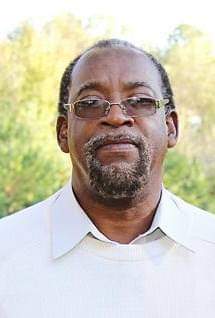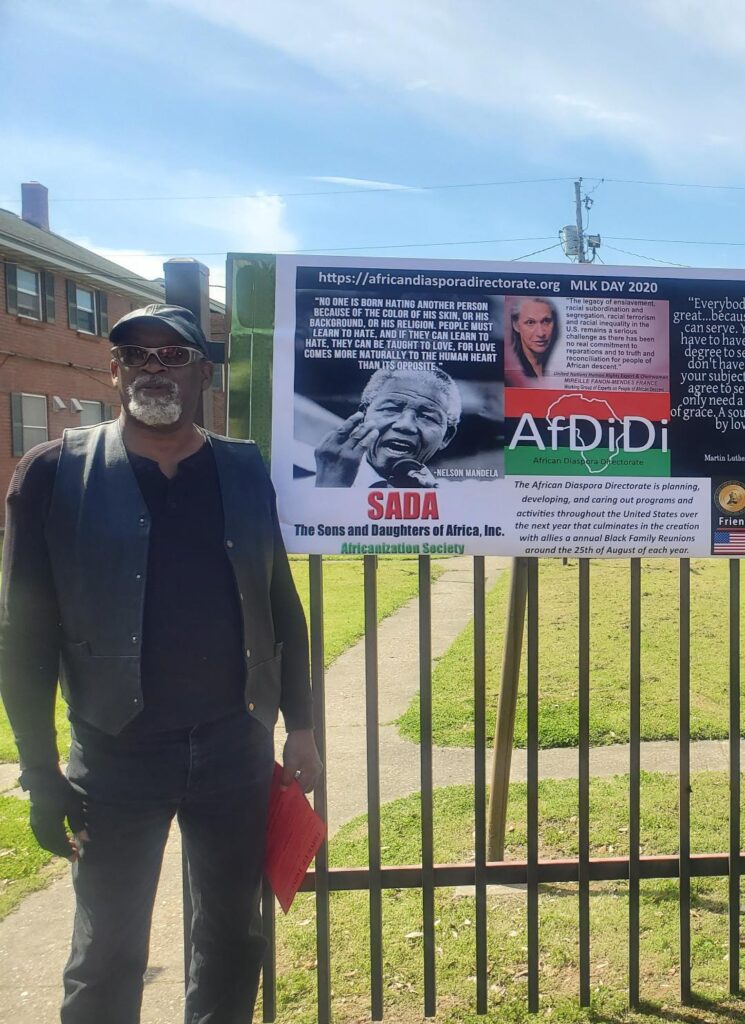Ernest Walker is the perfect example of the phrase “Don’t judge a book by its cover.” From a first glance, one might see a family man, devout Christian, genuine friend and a beast on the grill. However, there is so much more behind the smile of Mr. Walker. Though he has lived a long and prosperous life, he has experienced some pain and injustice as well. These tribulations that he has gone through are those that, because of his easy going persona, no one could ever imagine he would have to experience.

Walker has reveled in the joys of being a father, friend and more to people of all backgrounds but he has also lived through racism and unjust treatment. One of his most memorable encounters being during his time as a line installer at Bell South.
“When my wife and I got married, I had tried to get a job at Ad Benefits. A lot of my partners at the time were going to Chicago and leaving Mississippi because there weren’t any jobs here,” said Walker. “They had International Paper here, you had the telephone company, Mississippi Power and Lights. You had a couple of places that paid good so I put in an application with all of them just trying to get something where I could have benefits and retirement.
“The phone company was the one that came through.”
After taking the job at Bell South, Walker learned that things wouldn’t be easy and he struggled from time to time with his coworkers, clients and even his supervisors.
“It was rough working for a phone company in the South,” he said. “There was a lot of discrimination but we stayed because we got good benefits. A lot of people didn’t stay because they couldn’t take the pressure but I stayed there for 28 years and I look back and those were some tough years. There wasn’t anything easy about it, but I got to be our union president. One of the first to go out and bargain.”
As union president Walkers’ job was to ensure that each employee was treated fairly, but not everyone was keen on Walker, a black man, being in charge of what was deemed fair and unfair.
“I had people calling me from all over the state, white and black because I was one of the people that felt if somebody had a problem on the job and still had to go home to their families with that on their minds, I didn’t like that,” he said. “So if they had something they thought was a problem I’d look in my book and let them know if it was an issue or not because there were some things that the company could do.
He often had to work twice as hard as his white counterparts to get recognized for doing his regular work and when it came to being a union president things were equally, if not even more, difficult.
As union president he was given the coveted opportunity to attend a conference for people who were a part of the workers union.
“I got to go to that conference because I’d made a name for myself,” he said. “I was known for representing people in the right way. When I got called to go I was shocked and when I found out that I was the first black male to serve on this capacity, that was something. I think it was me and about three females that got to go and when we got there we found out that there were a good lot of white people that wanted to go since it was such a prestigious thing to be a part of.”
Even though he was blessed with the opportunity of a lifetime, Walker still experienced discrimination at the conference.
“One thing I did learn was that even though I was representing 125,000 folks in the state, there was a lot of discrimination going on even within the union,” he said. “I remember one evening I was the only black in my group and one of the bosses in the union stuck his head in during our time to socialize and said ‘Tomorrow I’m having a crawfish boil at my house and y’all are all welcome to come.’ Then he walked off but a minute later he stuck his head back in and said ‘Oh yeah, Ernest you can come too.” So I said I wasn’t coming because I don’t eat that sh*t. The big boss was in the room at the time and I didn’t know it but he came up to me and told me that I did right by defending myself and putting that man in his place.”
As he reminisces on his past and the future of America, Walker offers a few words of encouragement to those wanting to move past this stage of hate that the country has been stuck on for so long.
“Back in my day if someone got murdered you had an idea of who it was,” he said. “But now it’s much worse because there’s no telling who did what and people are scared. I do think that most people want to live in peace and once we get the right leadership in place we’ll be able to do that. Right now we just need to let people know what is and isn’t acceptable and I think it’ll work.”
-Interviewed by Nicole T.



Thank you for all that you represent and stand for. Your Integrity, morals and character and being a gentleman at all time. A loving husband, father and friend. You are “The Definition of a Christian man.”
Love you
Mary Barnes
Thank you for stopping by! We will be sure to share your kind words with Mr. Walker.
Thank you for sharing your story. It is museum worthy and deserves to be placed in the archives. Mississippi, while being a RIGHT TO WORK state, needed someone of your character to stand firmly for the workers. This is the essence of the kind of history I am collecting as a museum curator in your and my hometown of Vicksburg, MS.
This is awesome! It is so important that we honor and recognize all of our heroes. Thank you for stopping by!